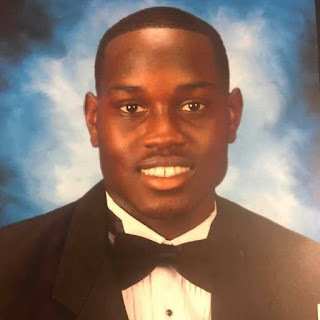Victorian
poet Christina Rossetti (1830-1894) wrote a poem titled “Who
has Seen the Wind?”* It goes like this:
Who has seen the wind?
Neither I nor you
But when the leaves hang trembling,
The wind is passing through
Who has seen the wind?
Neither you nor I
But when the trees bow down their
heads,
The wind is passing by
During this week when we consider the wind and flame that came on the day of Pentecost, it is clear that a mighty wind can do great things, even though it is invisible. The Spirit of God is indeed the most powerful force in all of the universe and beyond, making a strong case that such invisible things are everlasting and are the source of creation.
II
Corinthians 4:18 says “The things which are seen are temporal, but the things
which are not seen are eternal.” Hebrews 11:3 notes, “The universe was created
by the Word of God, so that what is seen was not made out of things that are
visible.” When we see the beauty of
creation and marvel at the power of Jesus’ resurrection and eternal life, we
can truly affirm with the poet that though we cannot see it, “the wind is
passing by.”
Yet we
cannot ignore the other invisible spirits at work in this world. Ephesians 6:12 reminds us “we do not wrestle
against flesh and blood but against the rulers, against the authorities,
against the cosmic powers over this present darkness against the spiritual forces
of evil in the heavenly places.” Just as
there is the Holy Spirit, there are invisible powers of evil that cause great
sadness and destruction. There’s that kind of wind as well.
As I ponder the recent revelation of the murder of Ahmaud Arbery, a young, black jogger in Atlanta, and the even more recent murder of George Floyd at the hands of Minneapolis police officers, the evil spirit of racism is clearly alive and prevalent in this country. In recent years it seems to be increasing at an alarming rate, as we hear about these crimes. There is invisible evil in the hearts and souls of people that gets acted out in violent ways.
Film-maker
and United Church of Christ pastor, Rev. Otis Moss III was featured in a recent
issue of Religion News Service (May 20, 2019) speaking about this invisible
enemy:
“As we are all sheltering in place to
recognize the invisible enemy of COVID-19, there is also an invisible enemy
that affects our behavior, being racism, privilege, the inability for the heart
to be compassionate to people who are different but not deficient.”
Jesus spoke
about this when he said, “Out of the heart comes evil thoughts, murder,
adultery, sexual immorality, theft, false witness, slander.” (Matthew 11:19)
We are all
“infected” with sin as we collaborate with the spiritual forces of evil. It starts in the heart, and then it is lived
out in behaviors that wreak havoc in the world.
We so quickly rush to excuse ourselves for our sins and find ways to
blame someone else, or try to minimize its influence on our lives. Temptation
and the resulting sin is real and is like “a roaring lion, seeking someone to
devour.” (I Peter 5:8).
All sin
needs to be opposed with the overcoming power of the Holy Spirit. In memory of Ahmaud Arbery, whose death took
months to uncover, and the recent death of George Floyd, I would like to shine
a light on the sin of racism.
Racism, this
invisible enemy, is something we need to address for the health and wholeness
of all of humanity. It is right here in our hearts, our neighborhoods, and our
annual conference. It must be addressed by people who have white privilege. Think
about these questions:
Do you consider yourself better than
people of color?
When do you separate yourself from
people who are different from you?
Does your local church reflect the
Acts 2 diversity of creation?
Do you support political views that
favor the rich and the majority culture?
Do you make friends only with white
people?
Do you support only businesses that
are owned by people who look like you?
Do you sit silently when they are
making inappropriate racial remarks?
These are
important questions for white people to consider and then do something about. It is not enough to just think about it if
things are ever going to change.
Dismantling
racism is a long journey and not something that is “once and done.” We need to be committed to doing battle with
this invisible enemy. As we do, we build
a church and a world where everyone is beloved and cherished, and no one of any
race or ethnicity is seen as “less than” or deserving of harm, oppression or death
because of the color of their skin.
(*In public domain)










